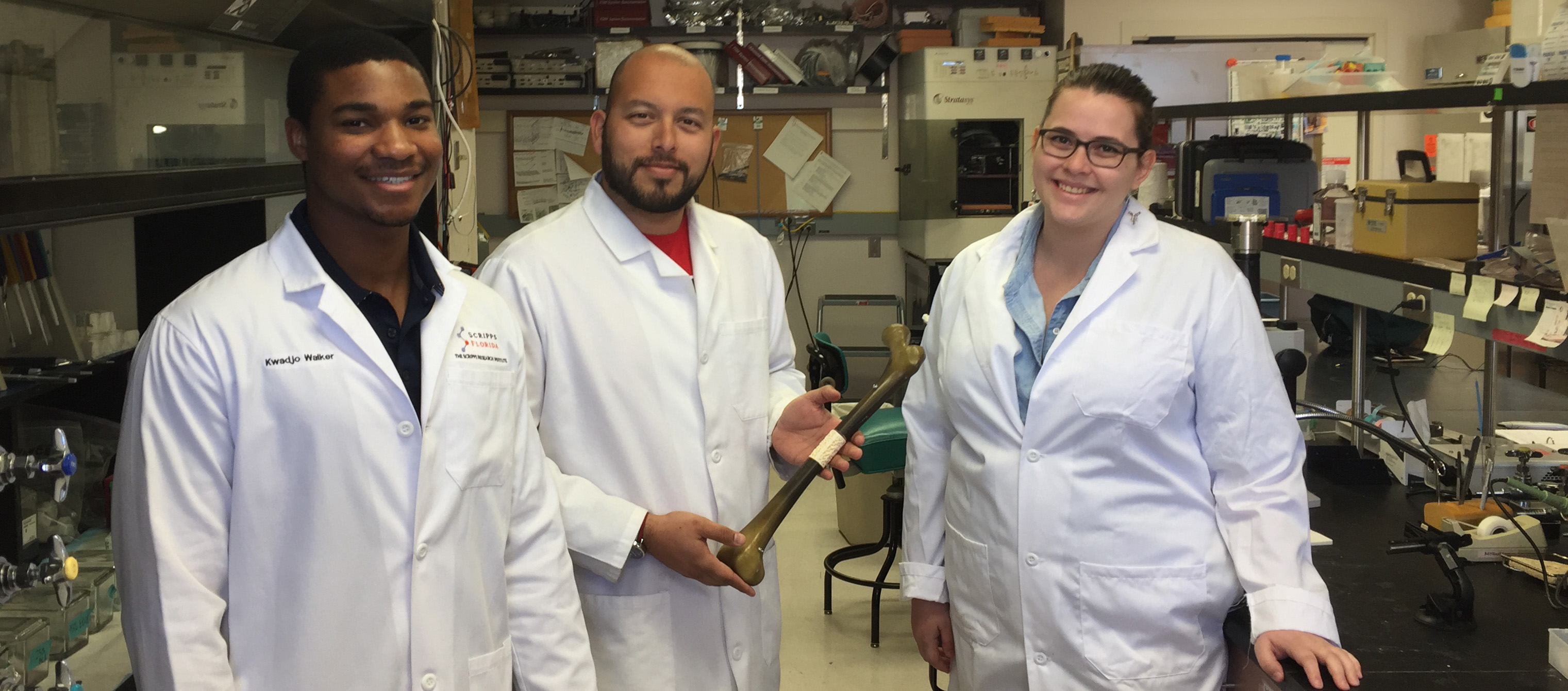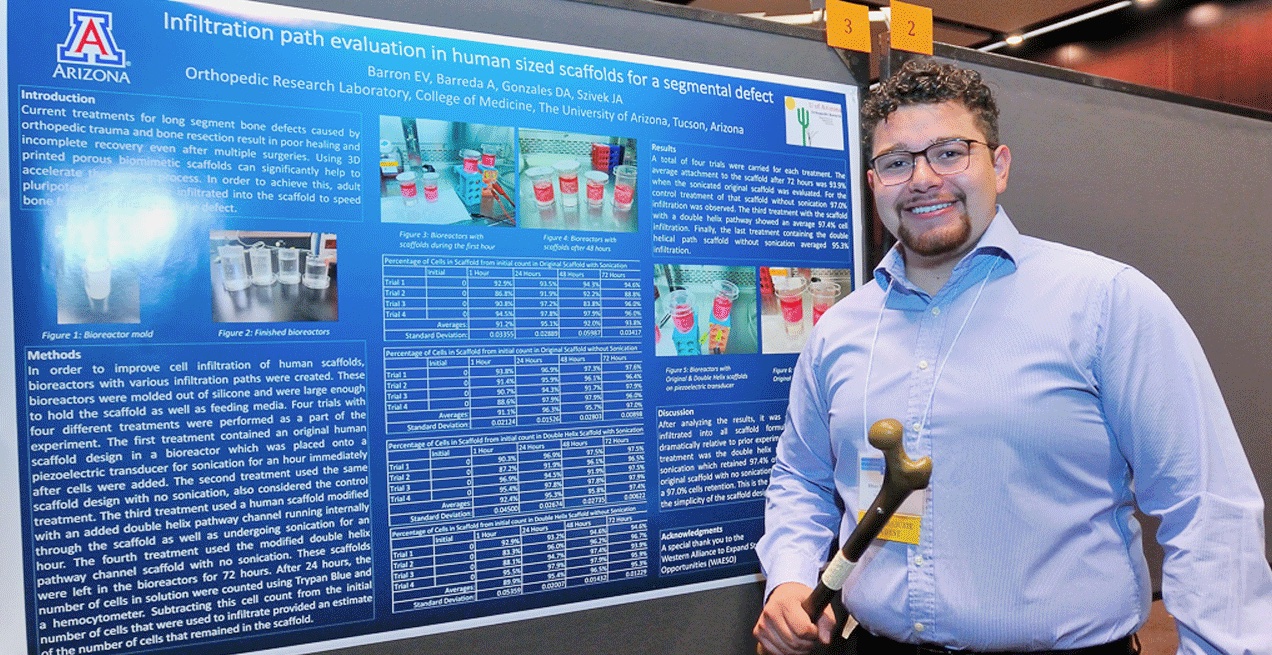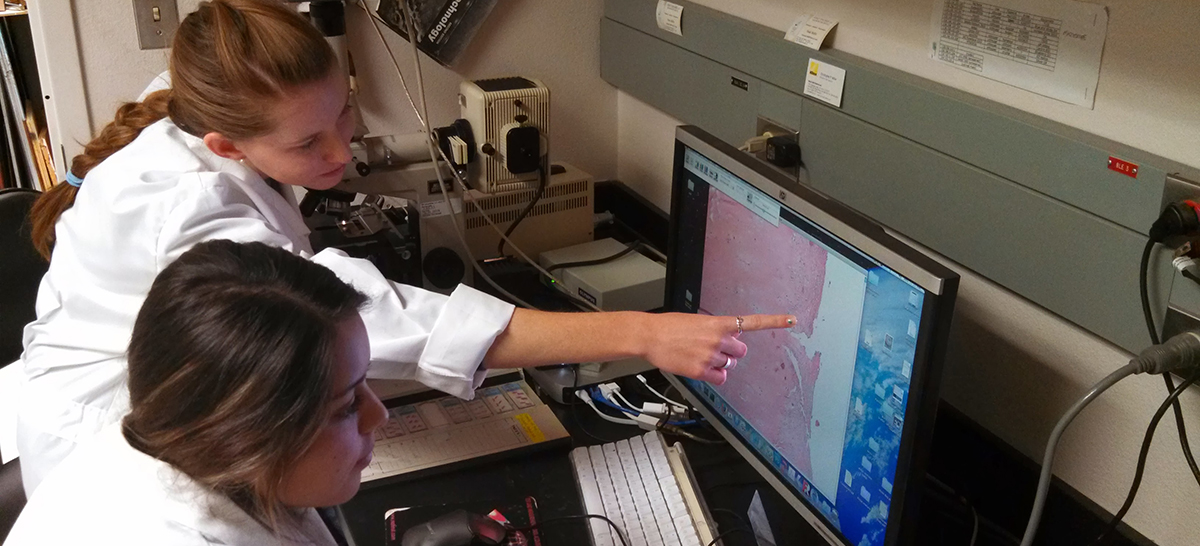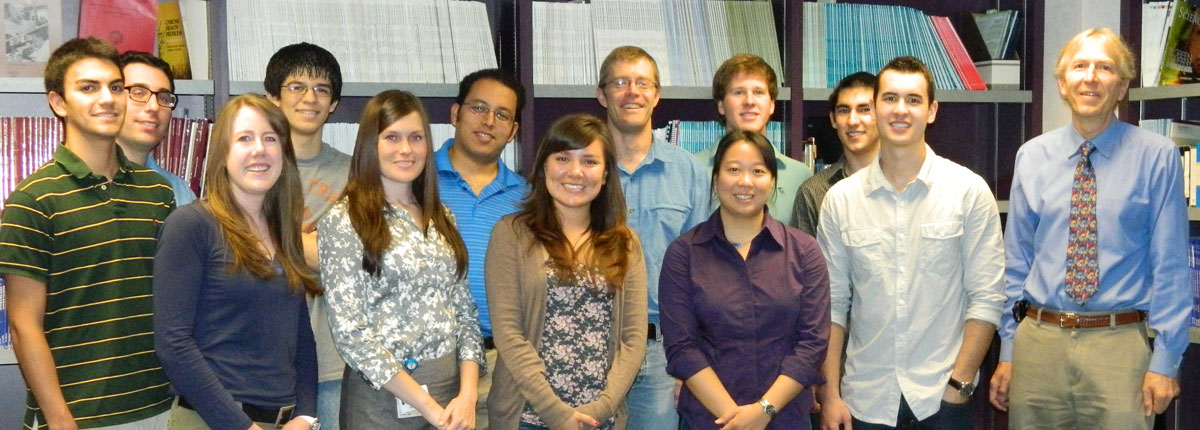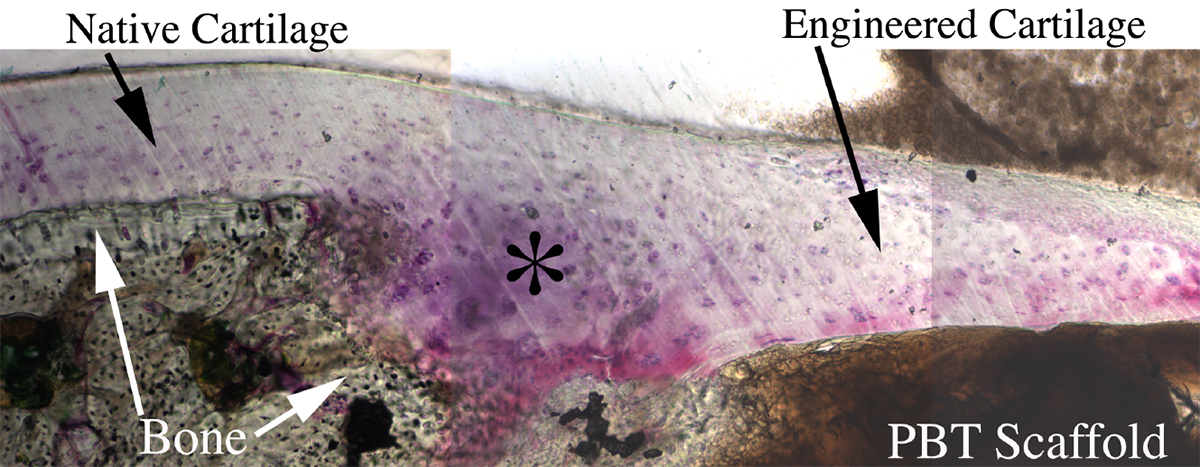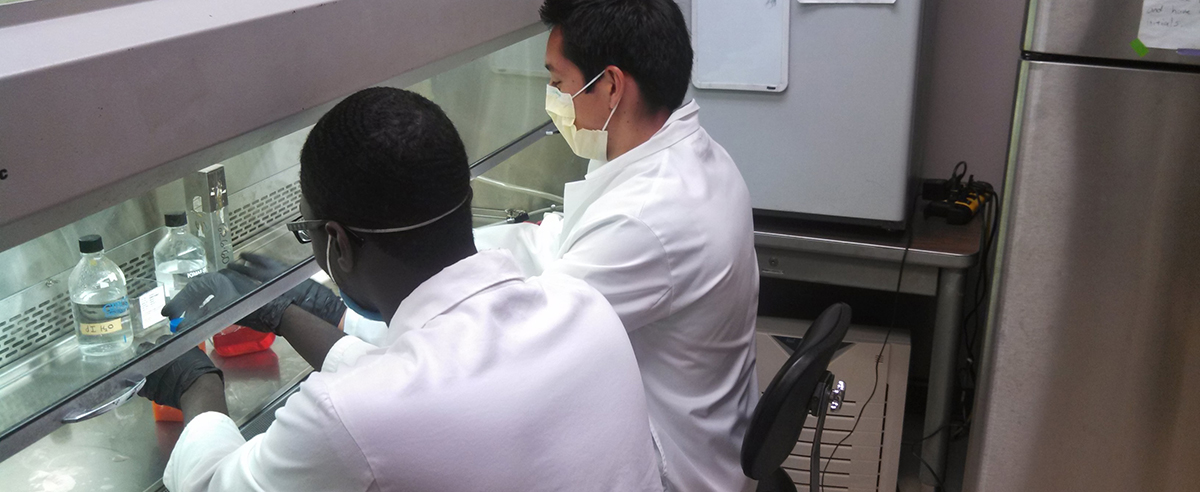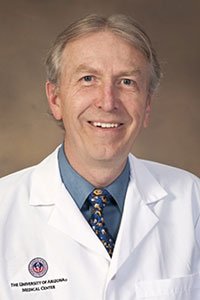 Dr. Szivek's goal in the Orthopaedic Research Lab, dedicted to lab founder Dr. Robert G. Volz, is to develop a clear understanding of the relationship between activity (measured using implantable sensors and radio telemetry) and musculoskeletal tissue formation (measured using µCT and histology). This information is being used to develop cartilage and bone regeneration therapies. These thereapies include the use of synthetic scaffolds, proteins and endogenous adult stem cells. Current results indicate rapid tissue repair and regeneration is possible when the understanding of these interactions are used to design clinical therapies.
Dr. Szivek's goal in the Orthopaedic Research Lab, dedicted to lab founder Dr. Robert G. Volz, is to develop a clear understanding of the relationship between activity (measured using implantable sensors and radio telemetry) and musculoskeletal tissue formation (measured using µCT and histology). This information is being used to develop cartilage and bone regeneration therapies. These thereapies include the use of synthetic scaffolds, proteins and endogenous adult stem cells. Current results indicate rapid tissue repair and regeneration is possible when the understanding of these interactions are used to design clinical therapies.



